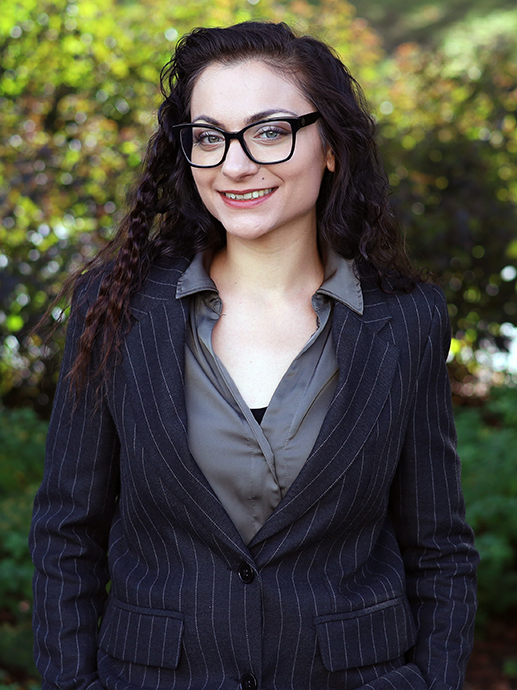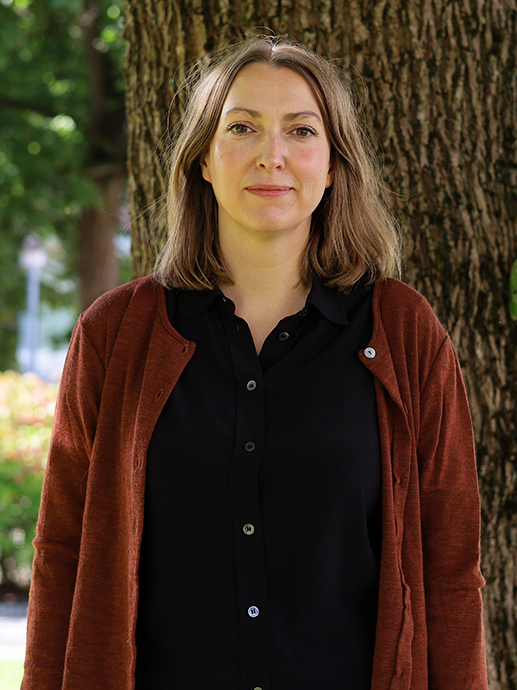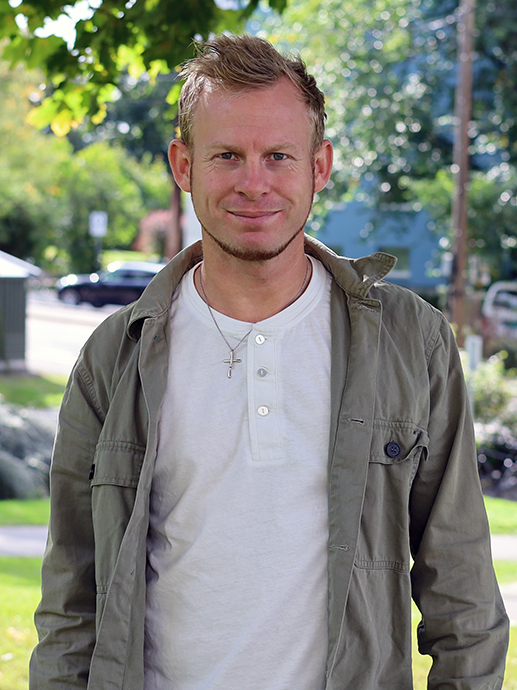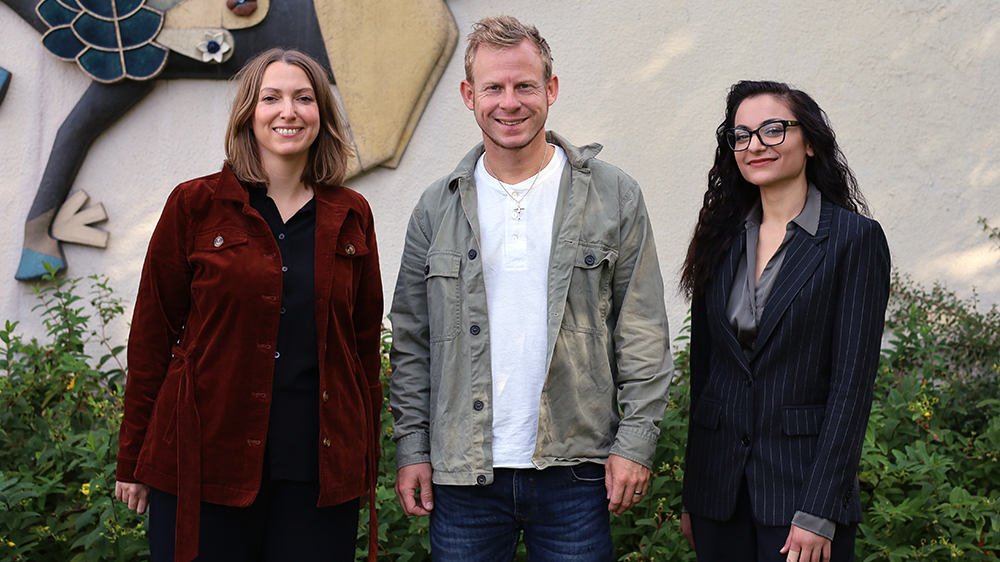Argyro Delidaki was born and raised in Chania, Crete. She has a bachelor’s degree in Theology and a master’s degree in History of Religions specializing in Islam, both from the University of Athens.
The interdisciplinary research orientation and focus on gender perspectives at the Faculty of Theology was one of the main reasons Delidaki decided to pursue a PhD in Oslo.
‘The research profile in the various sub-disciplines relates to all dimensions of my project. I believe that my project will be enriched in this environment,’ she says.
Eve between Byzantium and Islam

Delidaki’s PhD-project is a genealogical study of transgressive femininity based on the exegetical narrativization of the character of Eve in the Byzantine Christian and Sunna Islamic traditions.
Delidaki says this is contextualized in the Mediterranean cultures continuum and she aspires to examine to which extend the Byzantine and Islamic Eves are actually Mediterranean Eves.
‘I will be researching whether the character of Eve reflects Mediterranean values. I will also be looking at how gender relevant themes found in exegetical narratives formed a genealogical network which exemplified the deviant, not socially sanctioned form of femininity, or whether the exegetical process enculturated the character of Eve in the Mediterranean milieu,’ Delidaki explains.
Her interest in this field of research came to her as a master’s degree student, when she focused on women’s history in early Islam.
‘After the completion of my master’s, the various pieces from my previous interests and studies started to glue together. Among these interests were the interreligious encounters between the Eastern Orthodox tradition and Islam.’
Playing a key role in academic and personal growth

Marita Furehaug is from Oslo, but was eager to travel abroad once she finished high school. This first led her to Sharm el Sheik in Egypt, where she worked as a divemaster and snorkel guide for two years. Her experiences from this time might be part of the reason why she is now exploring Muslim worldviews in relation the environmental crisis as a PhD fellow.
‘I remember feeling very humbled, fascinated and privileged to be able to explore the beautiful colors and formations of the creatures in the Red Sea. I felt like a visitor in a different realm. It is also one of my most vivid recollections of feeling a great sadness over the human species destructive abilities,’ Furehaug says.
Furehaug moved to Copenhagen after her stay in Sharm el Sheik, where she in 2014 attained a bachelor’s degree in Arabic Language and Middle Eastern studies. As part of her bachelor’s studies, she also spent a semester abroad in Cairo.
In 2018, Furehaug started on her master’s degree in Religion and Society at the Faculty of Theology. After finishing her degree, Furehaug has spent two semesters teaching seminar groups here at the faculty.
‘During this time, I have come to know the faculty as both nurturing and challenging, and as playing a key role in both academic and personal growth,’ Furehaug says.
Islamic Eco-apocalypticism for the Anthropocene
Furehaug intends to explore the relations between Muslim worldviews and contemporary discourse on the climate crisis and challenges related to the environment in her PhD-project, which lies at the intersection of Islamic (eco)theology, environmental humanities, and lived religious practice.
‘Drawing on elements from Islamic eschatology and eco-theology, the aim of the project is to formulate and conceptualize a theoretical framework on Islamic eco-apocalyptism,’ Furehaug says.
‘Further, I intend to gather empirical data from the Egyptian context that could possibly inform this conceptualization,’ she adds.
Atonement and reconciliation

Gustaf Henriksson was born and raised in Sweden. His education background is from the University of Gothenburg, where he earned both his bachelor’s and his master’s degree in theology.
‘As a student, I tried to steer the literature towards issues of atonement and reconciliation. That has always struck me as one of the most interesting and relevant themes in religion as well as in life,’ Henriksson says.
For the last two years, Henriksson has been working as a middle school teacher, while meriting himself by doing and publishing research on his own. Before that, Henriksson worked as a pastor for nine years, leading a congregation of about 120 people.
‘As a church leader, I can really say that I have worked a lot hands on trying to implement reconciliation and building bridges between conflicting parties. So atonement and reconciliation as a topic has really been running through my life as well as my reflection on several levels.’
While Henriksson worked as a church leader, he also wrote his master thesis about the intersection of soteriology and ethics in the letter to Titus.
‘My supervisor was a great reason that my interest for further research was sparked. I knew what I was heading for from the point of presenting my master thesis in January 2019.’
God-given Salvation: An Exploration of Soteriology in the Pastoral Epistles
‘I intend to explore the teachings of salvation in the Pastoral Epistles. I will also investigate whether coherence can be found,’ Henriksson says about his PhD-project.
He will apply Professor John Barclay’s taxonomy for gift giving and grace in antiquity in doing this.
‘The Pastoral Epistles is by the majority of New Testament-scholars regarded as post-Pauline. The authorship question and isagogic concerns have received a lot of attention, but my take is different. It is more literary in its method and theological in its aims.’
We wish our new PhD fellows a warm welcome to the faculty!
